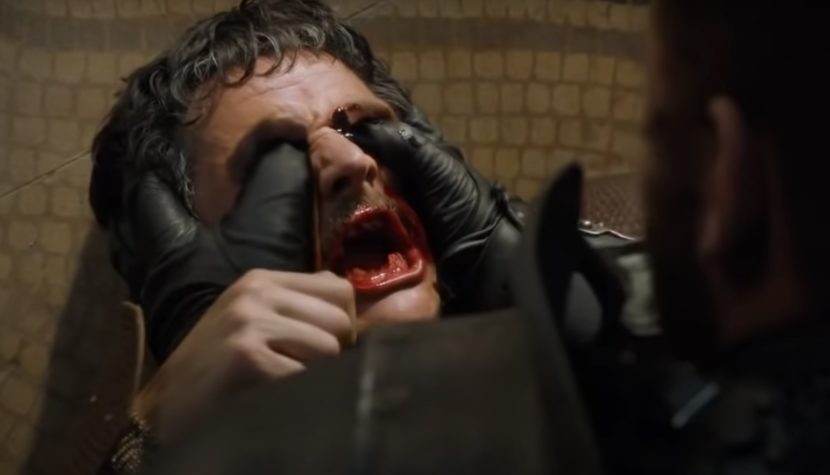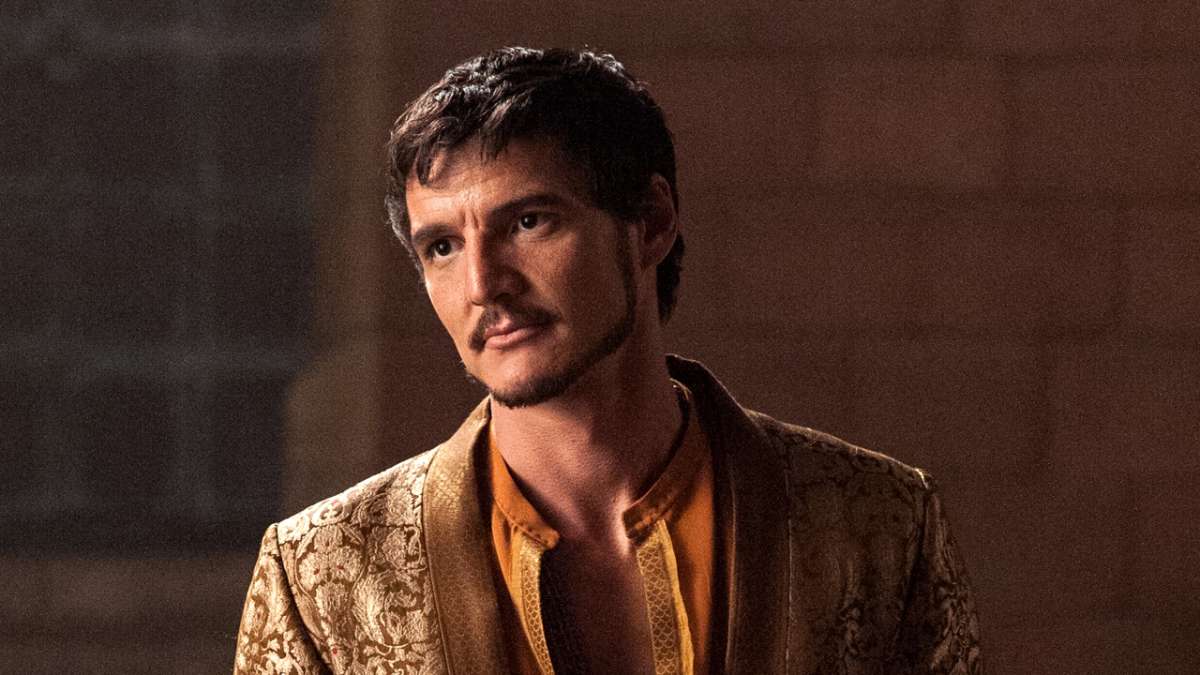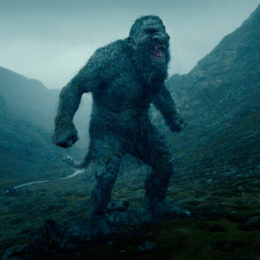GAME OF THRONES. “The Mountain and the Viper”, or when Pedro Pascal’s head exploded

In the last decade, Game of Thrones was a real phenomenon that electrified the audience and set new trends in the television medium. Today, the flagship HBO series is overshadowed by a weak ending, which slightly distorts memories of the production. As bad as season 8 might be, it shouldn’t overshadow just how gripping Game of Thrones was in its best years. You can argue about when exactly they fall, but rather no one will argue that the golden years of Thrones include the 4th series, broadcast in 2014. It was in this season that Pedro Pascal made his cameo in Westeros, whose career skyrocketed after this very misdemeanor. Although Pascal appeared in the series for a short time, he managed to make a strong presence and became the main character of one of the most memorable (and plot-fraught) moments of the series, which was the finale of episode 8 of the fourth series entitled The Mountain and the Viper.

The title of the episode immediately signaled that the main course would be a duel between Oberyn Martell (Pascal’s hero) and Gregor Clegane, who were to face each other in the trial of combat demanded in Episode 5 by Tyrion Lannister, accused of killing King Joffrey. In Episode 6, Martell agreed to represent the viewers’ favorite mainly so he could fight Ser Gregor, the murderer of his sister and her children. The plot of Joffrey’s murder and Tyrion’s accusation was one of the main themes of the entire series, defining its character. Another marker of the latter was the charismatic presence of Oberyn, coming from distant Dorne. The teaming up of forces, even if purely strategic, between Tyrion and the fast winning audience Martell was an exciting promise of resolving this conflict, however it turned out. Episode 8 had to live up to that expectation.
However, before the creators showed us the title clash of the Viper (Martell) and the Mountain (Clegane), they developed other threads for over half an hour, making the viewers wait for the main course. The episode therefore begins with a sequence of Wildlings attacking one of the settlements beyond the Wall, which in turn was one of the final elements building on what was to happen in the next episode, i.e. the great battle between the Night’s Watch and the Free Men pushing north from behind the Wall. A little further south, we also saw the capture of Moat Cailin by Ramsay Snow (Joffrey’s natural successor as the show’s most hated character) Bolton forces with the help of Theon Greyjoy, broken by the torturer and forced to negotiate the surrender and effective massacre of his Iron Isles brethren. Going a bit further towards King’s Landing, the creators also served an interesting solution to the cliffhanger from episode 7, which ended with the murder of Lady Arryn by Petyr Baelish. In an unexpected twist, Sansa Stark, under Littlefinger’s tutelage, helped him avoid punishment by showing her evolution from victim to gamer who would eventually play a pivotal role in the titular Game of Thrones. In connection with this plot, we also received a kind of comic relief, when the Hound finally leads Arya to the Valley, only to find out that after Arryn’s death, there is nothing to count on the ransom that motivated him from a good season. Finally, Episode 8 also took an important turn in the plot of Daenerys banishing Jorah Mormont from her court after it was revealed that he had been spying on her for the Seven Kingdoms in the first season. All of these pieces of the puzzle were important moves from a macro-story perspective, but David Benioff and Dan Weiss left the most important for last.

Related:
Barely 10 minutes before the end of the episode, we cut to Tyrion, sharing what may be his last conversation with his brother Jamie while awaiting a battle trial. This is followed by the (finally) long-awaited confrontation that will not only decide Lannister’s fate, but also potentially settle the score between Martell and the killer of his family. The clash is a show of realization of the director of the episode Alex Graves. In a dynamic montage, which does not lose the transparency of the action, we observe a confrontation between the great and strong Clegane and the agile Martell jumping around him. While Clegane initially seems to win due to the sheer disparity of mass and arm reach, it turns out that Oberyn is a seasoned fighter who quickly gains the advantage and after a few minutes of trading blows knocks the opponent down (the only minor choreographic flaw is the moment of cutting of the tendons in Mountain’s leg, clearly remaining in the open position to allow the operator to capture the moment).
However, Oberyn does not finish off the rival, but escalates his litany of “you raped her, murdered her, you killed her children – say her name” (referring to the sister Clegane killed) directly pointing to Tywin Lannister as giving the order and demanding confirmation from a downed opponent. This leads him astray – when he loses his vigilance for a moment and gives an excited smile to his mistress, with the last of his strength the Mountain knocks him to the ground, knocks out his teeth and crushes his skull, finally uttering the name “Elia Martell” and taunting, repeating Martell’s words about what he did with her. The effect is that the Mountain is barely breathing, and Oberyn ends up with his skull shattered with his bare hands a few seconds after his triumph, not only ending his brief participation in the Game of Thrones, but also predetermining Tyrion’s fate, left in severe shock. The classic, non-obvious culmination of Game of Thrones.

The Mountain and the Viper is, in some ways, everything that’s best in the peak period of Game of Thrones – we have interestingly developed character characteristics, we have a dose of intrigue, action scattered across Westeros and Essos, we have minor climaxes, preceding a really strong, brutal and surprising punch line , in which a rather positive character is killed as a consequence of his wrong decisions (and shoes). This episode also launched several important narrative lines for subsequent episodes and seasons – the verdict provoked Tyrion’s escape to Essos and the killing of Tywin on the way, which completely changed the balance of power in King’s Landing and – unfortunately – reduced the plot of the youngest Lannister to a flat collection of coarse jokes and uninteresting events, one of which was an encounter with an exiled Mormont. The plots in the North were also heading towards escalation, as well as the trajectories concerning the two Stark sisters were significantly changed. In retrospect, it was one of the last truly great moments of the show, which was about to lose its flair and idea for many characters or plots (in the face of a lack of source material). But still, this episode remains a classic, showing how great the Benioff-Weiss duo was able to lead this series.





